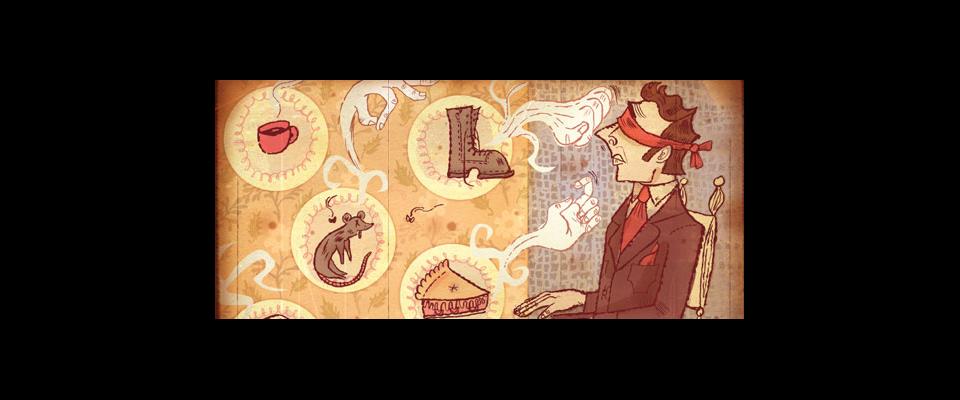Say that you’re blindfolded and something odorous is wafted under your nose: burnt paper, molasses, the scent of mouse, or any of the tens of thousands of documented smells. Chances are it will take you a few seconds to figure out what it is, and even then you might guess wrong. But within half a second, says Berkeley neurobiologist Rehan M. Khan, you can reliably say whether the scent is good or bad.
Starting with this observation, Khan and colleagues at the Weizmann Institute in Israel set out to understand how a molecule’s chemistry corresponds to our perception of its smell. Subjects were placed in a stainless steel room and hooked up to an olfactometer, a contraption that looks like an elephant’s trunk mated with a garden rake. Once tubing was sealed over the subject’s nose, an odor—cat’s urine, cinnamon, raw potato, varnish, black pepper—was piped in.
“We asked people to describe odors the way wine experts would describe wine,” explains Khan, lead author of the Journal of Neuroscience article describing the project. “Then we identified over 1,500 unique features of a molecule—for instance, its number of carbon double bonds. We asked a group of chemists to reduce all the information to the single most informative number. When all the molecules were lined up according to number, their place in the spectrum correlated to how pleasant our subjects said they smelled.”
For Craig Warren, the scientific affairs director at the New York–based Sense of Smell Institute, the research represents a new approach to the decades-long effort to relate molecular structure and odor. “They’re looking much more comprehensively at how to describe a molecule and using sophisticated computer methods to show results,” he says.
This approach promises to save time and money for fragrance producers, which currently synthesize odor molecules in a laboratory and test them on professional sniffers. By using an algorithm instead, chemists could simply do the math and roughly predict a fragrance’s appeal. The applications are endless. One day, real estate agents might test the scents of homes they are hoping to sell, hotels could test the scent of their lobbies, supermarkets could test the smell of the aisles, and, who knows, perhaps using personal body-odor testers could become a daily ritual. “Everything in The Body Shop, dishwashing soap, laundry detergent, just about anyone who makes anything that has an odor needs to predict how good a molecule is going to smell,” notes Khan.
And what of the claim that people’s reaction to smells, like their reaction to taste, is subjective? “Our research shows there’s a core piece that has nothing to do with the individual,” says Khan. “The system is extracting information about molecules. It turns out that what you find palatable to eat is culturally specific, but what you find smells pleasant is not.”



















